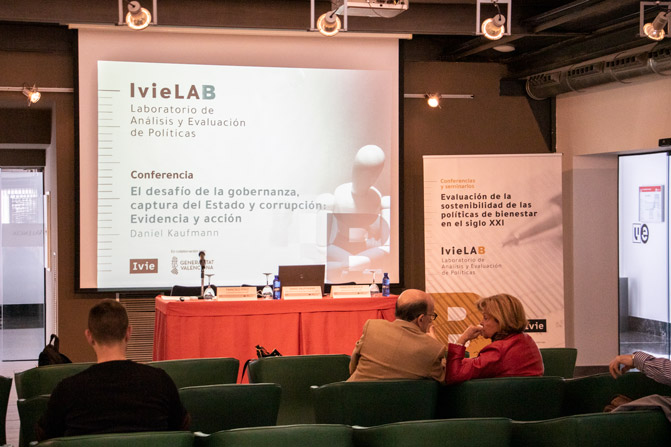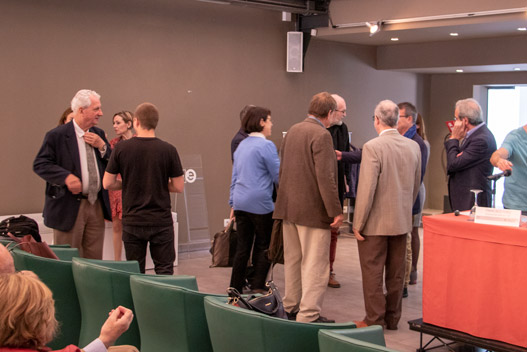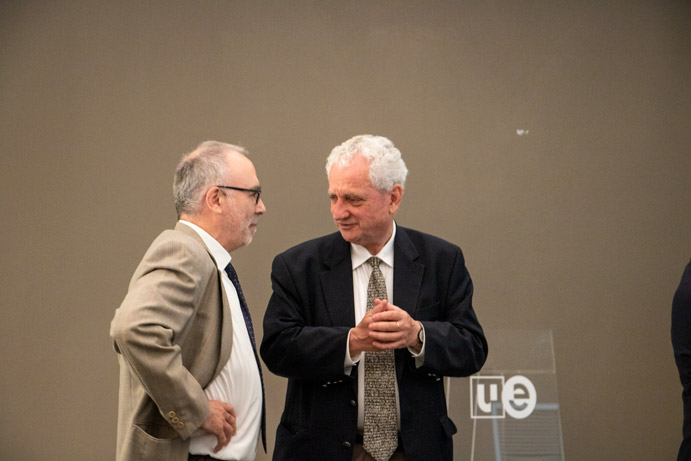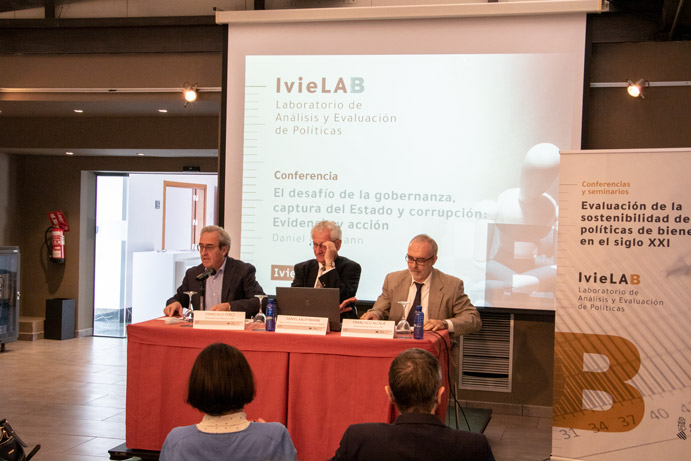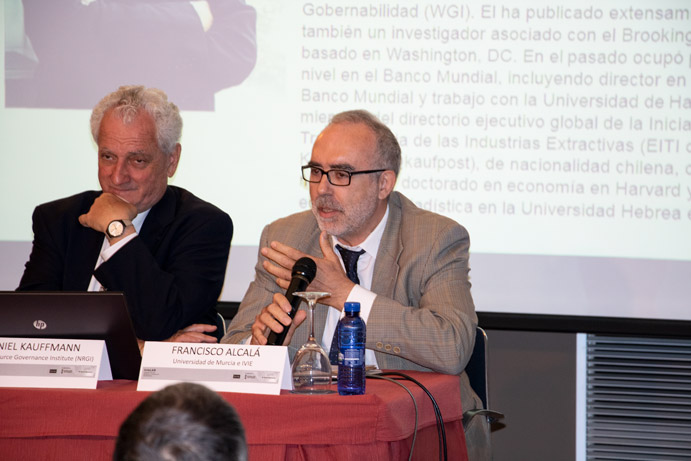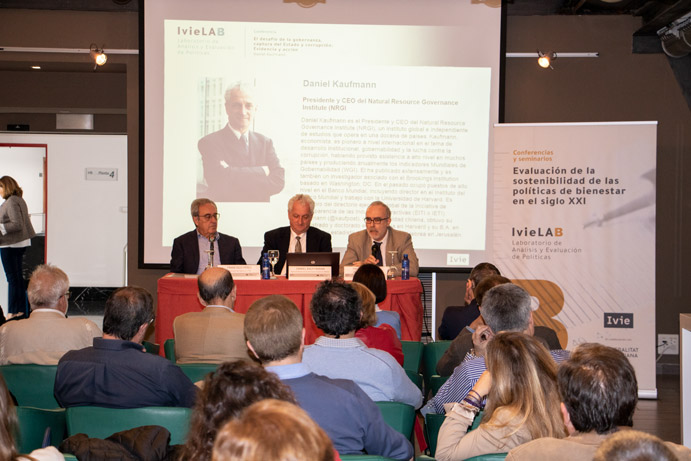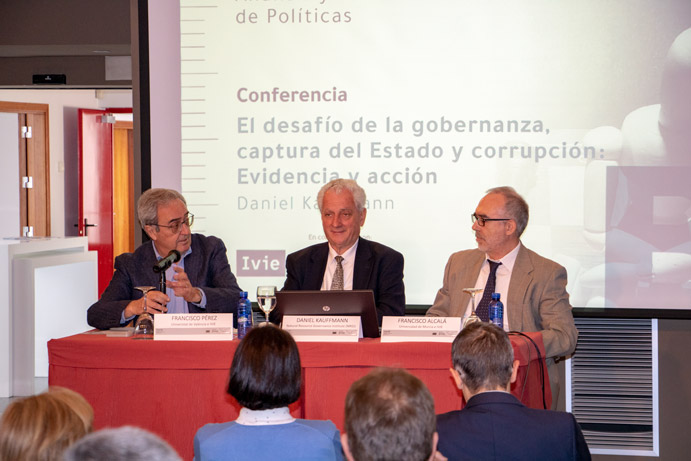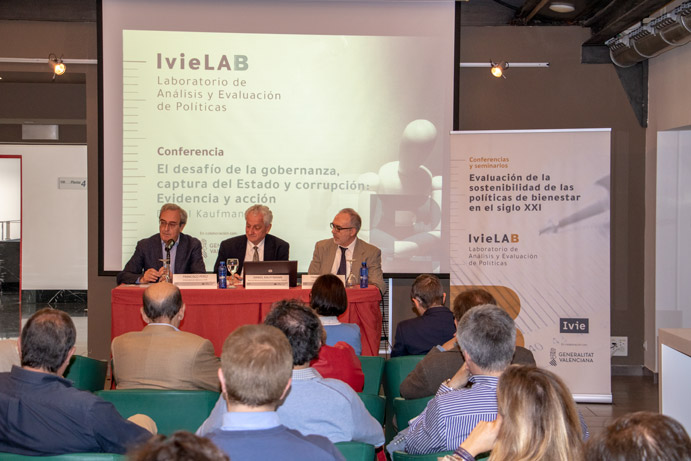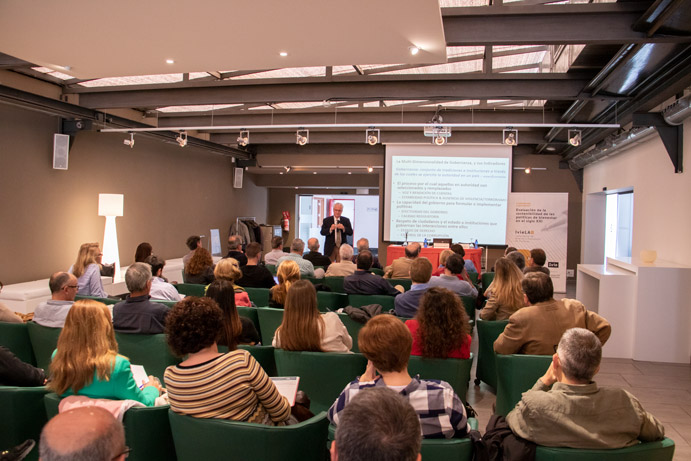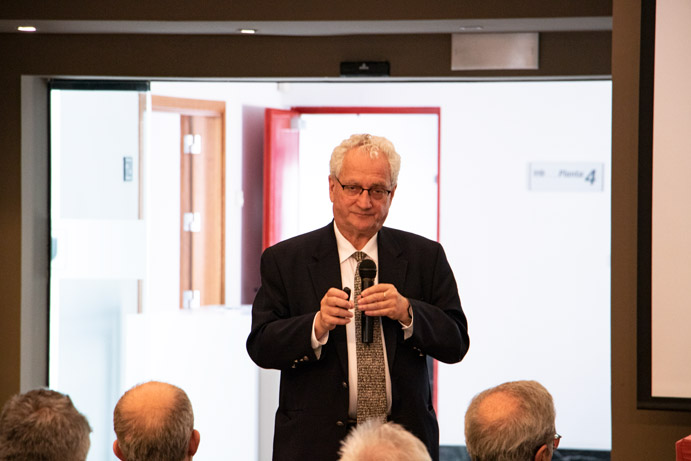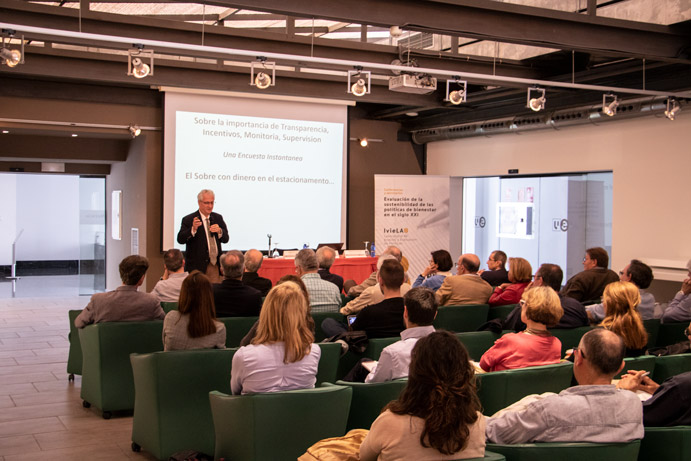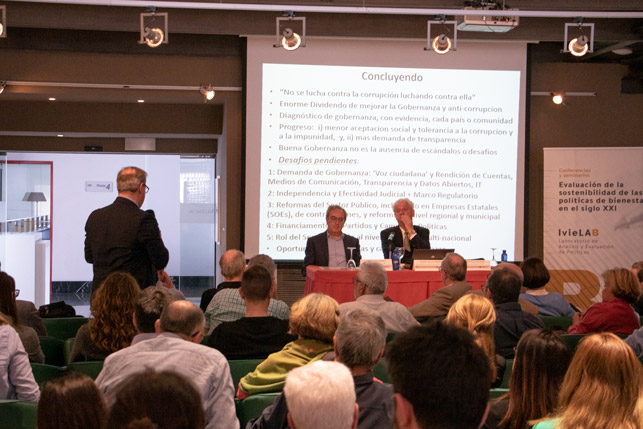Esta web utiliza cookies para que podamos ofrecerte la mejor experiencia de usuario posible. La información de las cookies se almacena en tu navegador y realiza funciones tales como reconocerte cuando vuelves a nuestra web o ayudar a nuestro equipo a comprender qué secciones de la web encuentras más interesantes y útiles.
News
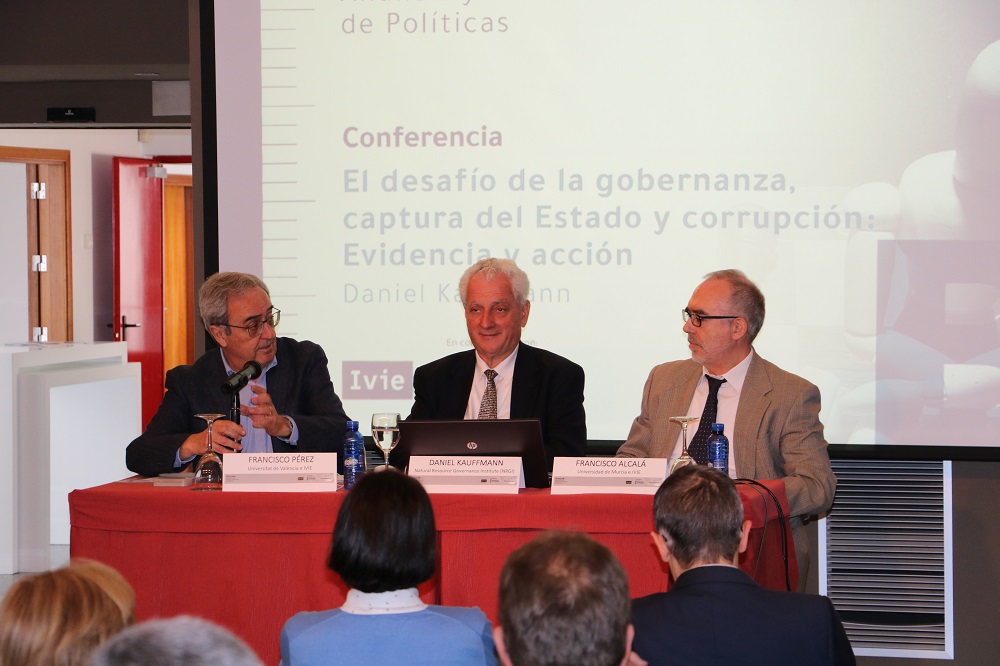
Daniel Kaufmann: "2% of world GDP is lost to corruption and bribery"
The IvieLAB lecture given by the Chilean economist, Daniel Kaufmann, examines the cost of poor governance and the challenges arising from changing world leadership.
Corruption is a worldwide phenomenon, annually costing around 2 trillion USD, equivalent to 2% of world GDP, according to the economist Daniel Kaufmann, who presented the talk entitled “The Challenge of Governance, State Capture and Corruption: Evidence and Solutions”.
Based on his analysis of the evidence, the Chilean economist shows how the fight against corruption can be won with good governance reflected in transparency, accountability, effective regulations, meritocratic systems, independence and stronger judiciary powers. It is also important to have transparent and competitive public contract processes and to address state capture and conflict of interest.
Governance in Europe varies. While progress has been made in several countries, such as in Spain, in aspects of democratic accountability and transparency, other countries, such as Hungary, Poland, Turkey and Russia, have experienced setbacks. Nowadays in many countries, including those of Latin America, there is less tolerance for corruption and impunity. But even so, important challenges remain where reforms are needed, including in Spain. Such reforms are possible, explains Kaufmann, “if there is political will and leadership and if change is accepted as necessary by government officials, civil society and the business sector”.
Populism, nationalism and isolationism are global trends that particularly worry Professor Kaufmann, as they are threatening democratic institutions in countries such as Poland, Hungary, Turkey, the US and Russia in their impact on freedom of speech and citizen participation. They also facilitate both economic and political corruption and state capture. “Fortunately several countries, including Spain, have not gone down these extreme political pathways”, Kaufmann pointed out.
“Although every country faces its own challenges, in general, all reforms must consider certain key issues such as the independence and effectiveness of the regulatory and legal framework and public sector reforms regarding state-owned businesses and public contracts., which must be transparent, competitive and depoliticized. The business sector must also be ruled by ethical obligations and should incur sanctions against bribery and collusion.” According to Kaufmann, President of the Natural Resource Governance Institute “changes and reforms are not easy as they involve certain costs and risks, but the costs of the status quo in a rapidly changing world are much higher. Current global governance and climate challenges are giving reformist leaders the opportunity to make changes that will benefit today’s society and future generations”.
The talk by Daniel Kaufmann is part of the IvieLAB (Laboratory for the Analysis and Evaluation of Public Policy) series of lectures and seminars organized by the Ivie, in collaboration with the Valencian Regional Government. During 2019 more experts will analyze different aspects of the welfare state.


